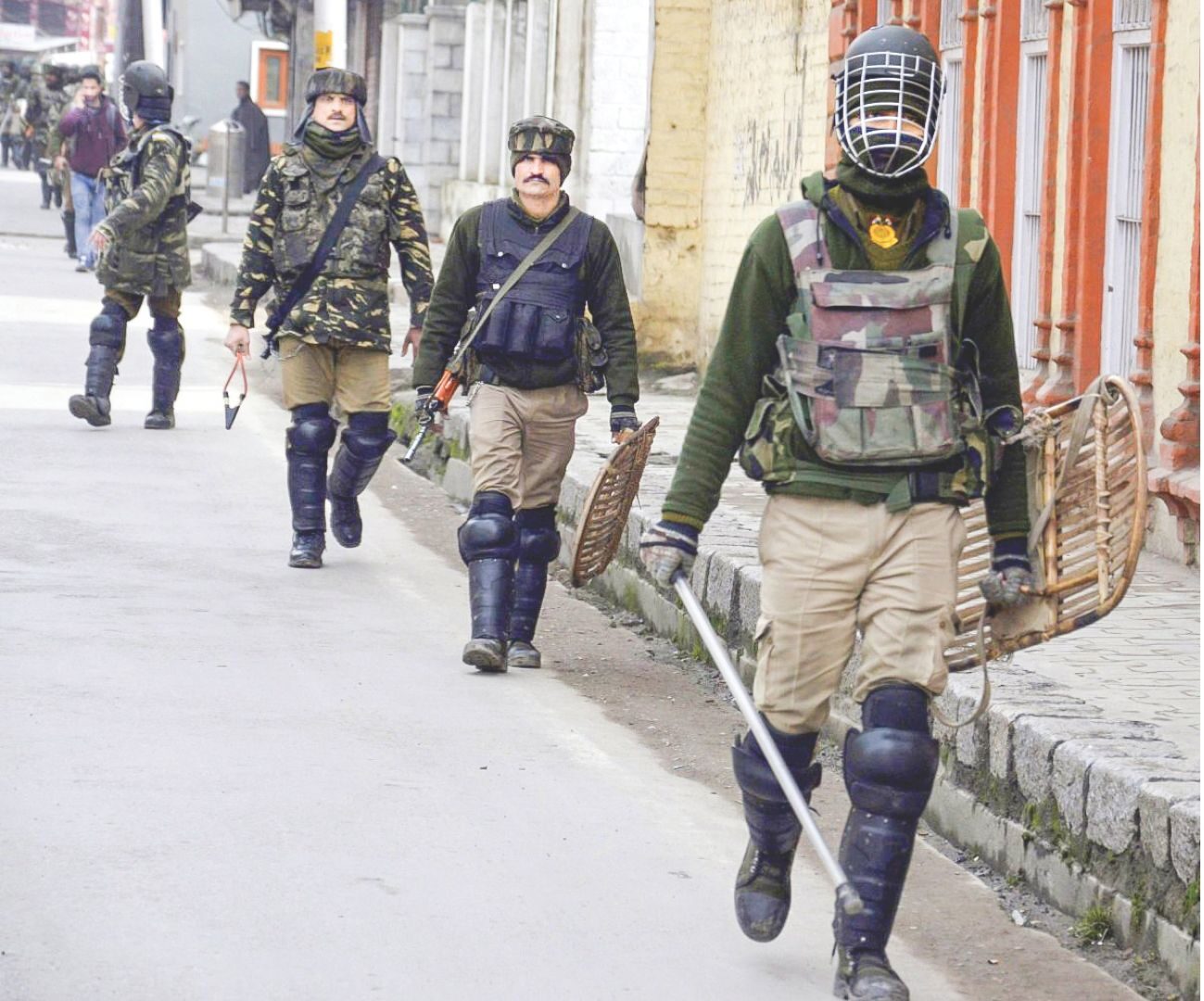The NDA government has arrived at the scene once again. India has an influential power internationally, which it probably has never wielded since Independence. Our economy is on an upswing. That it can no longer bulldoze India and, beyond a point, and India would not hesitate from a bloody retaliation has been realised for the first time by China. The government must have a well-orchestrated strategy for the next five years. The following nine points should merit grave contemplation on internal security.
One, Internal Security Ministry.
The Ministry of Home Affairs has become over bloated and cumbersome. Internal security issues calling for prompt actions, quite often do not get the swift and meticulous attention they deserve. It is imperative that a young, junior minister working in the MHA is assigned an independent charge of internal security. What an impact such an arrangement can make was shown by Rajesh Pilot.
Two, a doctrine on internal security.
There is too much adhocism in dealing with internal security challenges, especially with a change in government. Ideally, the nation must adopt a national security doctrine (NSD). From time to time the National Security Advisory Board has dealt with it and formulated drafts which were never approved. All recognized powers possess an NSD through which they depict the internal and external threats confronting the country and implement strategies for neutralising them. If there are any hindrances in adopting the NSD, its internal security component at least, which is simpler, could be implemented.
Three, the Northeast.
Manipur has been a debacle. Ethnic conflicts persist to simmer with occasional explosions of violence. The Home Ministry’s formation of a multi-ethnic peace committee has been a debacle. It is high time the PM took up the baton. The incubus of illegal migration, drug trafficking and arms smuggling necessitates a meticulous approach.
The Prime Minister has termed the Northeast “a piece of our heart”. A Framework Agreement concurred with the rebel Nagas in 2015 had raised great hopes, but these remain unfulfilled because of the NSCN (IM)’s obduration on a separate flag and constitution. The government must meanwhile demand a rigorous execution of the suspension of operations agreement and ensure that the rebels do not indulge in extortion and forcible recruitments.
Four, Jammu and Kashmir.
We must not be complacent about the designs of the Pakistani deep state. The government must take initiatives to revamp the security grid, restore statehood to J&K and hold elections for the Assembly. Despite the Home Minister’s claim that terror incidents are down by 66 percent since the abrogation of Article 370, the state is far from normal. Terrorists recently struck at four places in the Jammu region. Obviously, they are desperate to puncture the narrative of “Naya Kashmir”.
Five, the Naxal problem.
Nityanand Rai, The Minister of State for Home Affairs, stated in the Rajya Sabha on February 7, that the execution of the “national policy and action plan” brought about a consistent decline in violence and depletion of the geographical spread of left-wing extremism’s (LWE) sway. Violence and the resultant casualties had diminished by 73 per cent from a high in 2010. Rai further revealed that the number of police stations reporting LWE-related violence had declined from 465 police stations across 96 districts in 2010 to 171 police stations across 42 districts in 2023. It is now time for the healing touch with Naxals on the backfoot.
The government should extend them the olive branch, announce an unilateral ceasefire for a month, convince them to come to the negotiating table, address their genuine grievances, and mainstream them.
Six, Intelligence Bureau/CBI.
The IB was established through an administrative order on December 23, 1887. The CBI was established through a resolution passed on April Fools’ Day in 1963, and it extracts the power to investigate from the Delhi Special Police Establishment Act, 1946. The two premier central police organisations, the Intelligence Bureau and the CBI, require restructuring. It is imperative that it is endowed with a statutory basis, with safeguards to preclude the abuse of intelligence to bolster the party in power. The need of the hour is to strengthen the CBI in terms of legal mandate, infrastructure and resources as recommended in the 24th report of the parliamentary committee.
Seven, state police.
The Prime Minister wants the PMO to function as the People’s PMO. Robert Peel, the former British prime minister, is credited to this day for having transformed the ruling parties’ police into the peoples’ police.
Eight, Central Armed Police Forces.
The CAPFs with more than a million persons are infested with serious internal issues of falling standards of discipline, vague criteria for the selection of top officers, unplanned expansion, haphazard deployment, inadequate training, friction between cadre and All India Service officers, etc. The government must appoint a high-powered commission to look into these problems for their long-term solutions.
Nine, technology.
There is a need to set up a high-powered technology mission to recommend the adoption of the latest tech for the new challenges which the police are facing or are likely to face in the future, as suggested by the PM at the DGPs’ conference held in Lucknow in 2021. A country displays its vigour internationally in direct proportion to its internal cohesion, its dexterity to resolve problems within and not have any marshes where terrorists or extremists can have safe havens.







